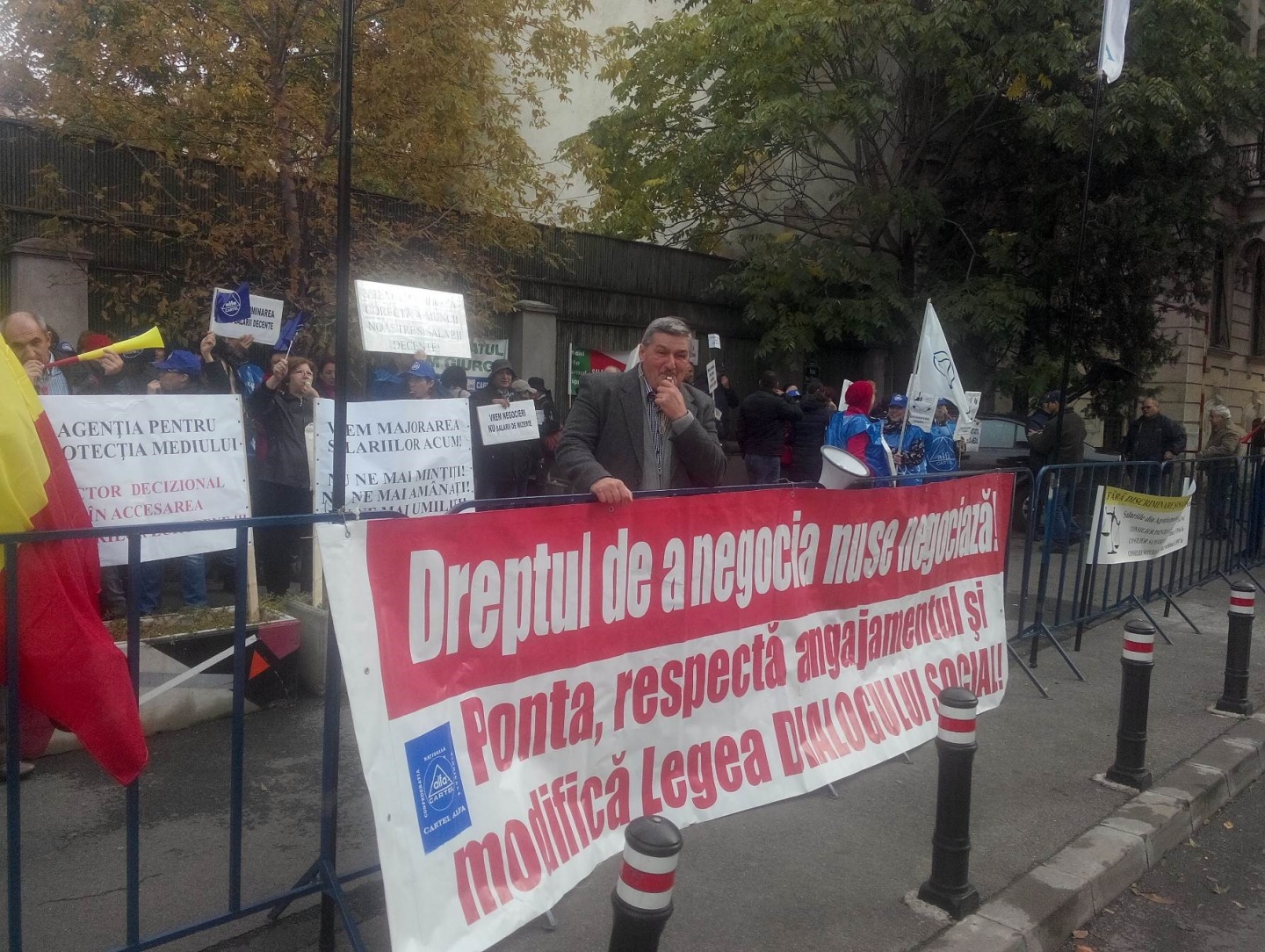1 December, 2015As attacks against workers’ rights continue and precarious employment is on the rise, trade unions are pressing the government in Romania to reform the Law on Social Dialogue and re-establish full collective bargaining rights.
The Law 62 on Social Dialogue adopted by the government in 2011 under pressure from the International Monetary Fund and the business community, and without being debated in Parliament, has radically altered the system of industrial relations in Romania. Labour law changes have affected some important parts of the employment relationship, such as work contracts, collective bargaining and working time, as well as representativeness and the right to strike. In particular, the law abolished collective bargaining at national level and made sector level bargaining virtually impossible.
The situation has got much worse for workers since the introduction of these changes. Many local unions have lost representative status. “There has been a massive decline in the number of collective agreements signed by trade unions” says Alexandru Rus, President of IndustriALL’s affiliate Metarom and member of the Tenaris global union network.
In many enterprises, he adds, “collective agreements are signed by so-called employees’ representatives who have no collective bargaining experience and lack appropriate skills and knowledge. Under such conditions workers’ interests are poorly served. Moreover, the restriction on the right to strike has impacted union capacity to mobilise significantly.”
In a joint letter addressed to the Prime Minister of Romania, IndustriALL Global
Union and IndustriAll European Trade Union condemned the repeated attacks against workers’ rights and their representatives, and expressed their complete support to their Romanian affiliates in their demand to reverse the legal changes made in 2011.
The legislation has also made it easier for employers to use non-standard employment contracts by extending the period for which fixed-term employment contracts may be concluded from 24 to 36 months. As reported by affiliates, the vast majority of the new jobs created are temporary. In addition, employers take advantage of lax legislation to reduce the number of workers on open-ended contracts and replace them with the more flexible fixed-term contracts.
Together with other unions, IndustriALL’s Romanian affiliates have picketed recently in front of the Ministry of Labour in Bucharest to denounce the erosion of collective bargaining rights and demand a reform of the Labour Code. Complaints have also been filed with the ILO about violation of core international conventions that Romania has ratified. Unions are determined to pursue their action and keep up pressure on the newly formed Government to bring the Law in line with ILO Conventions and restore the practice of social dialogue and collective bargaining.
“IndustriALL Global Union, together with our European sister organization, stands shoulder to shoulder with its Romanian affiliates,” said Kemal Özkan, Assistant General Secretary of IndustriALL Global Union. “We will continue to support the struggle of our Romanian sisters and brothers for decent working conditions and respect for fundamental workers’ rights.”


